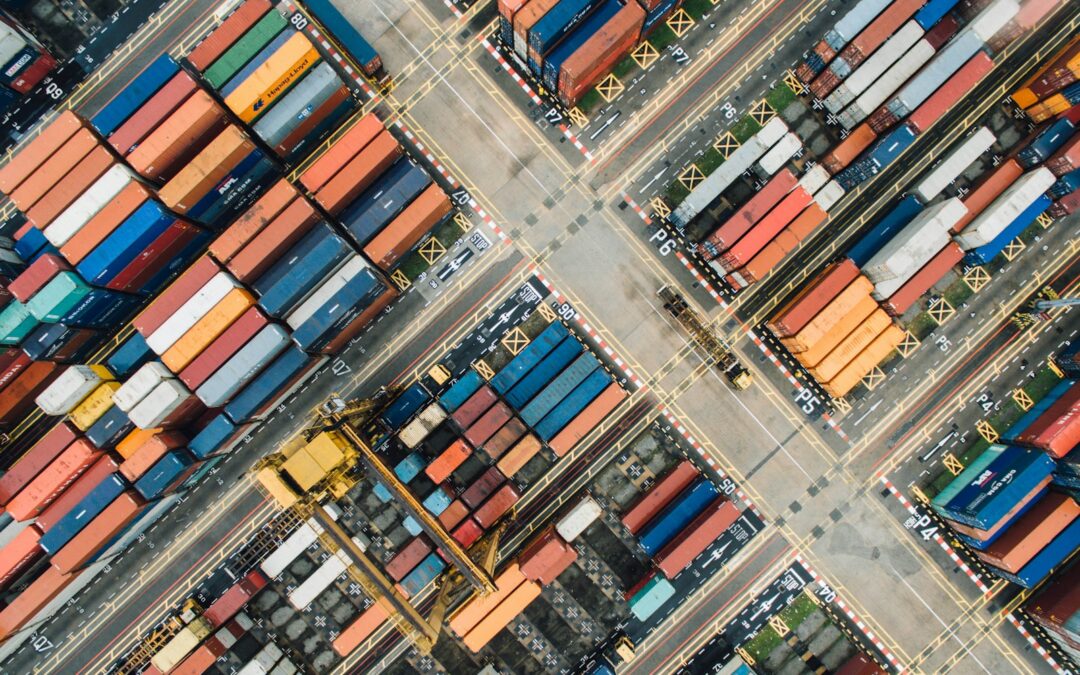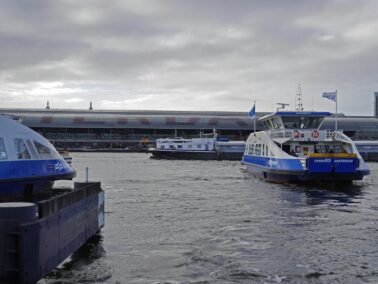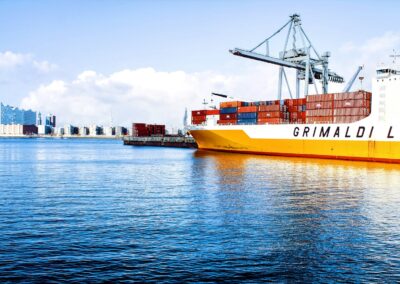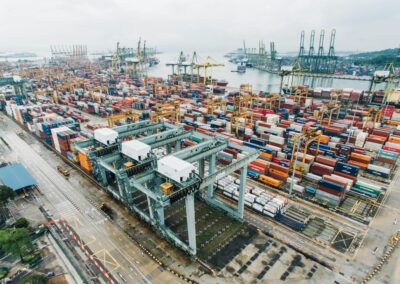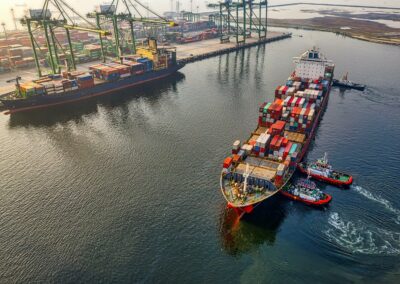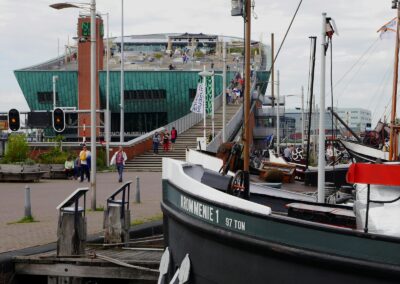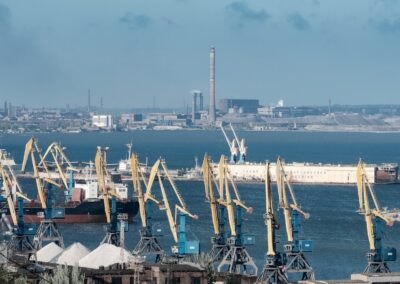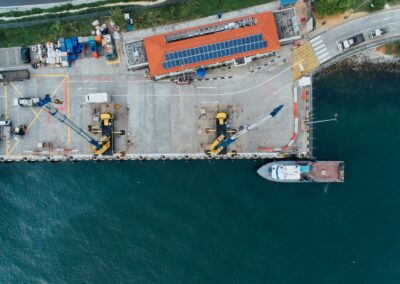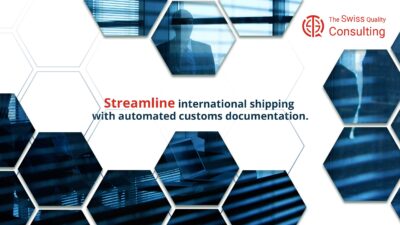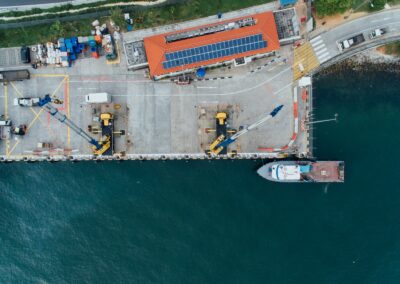The Future of Maritime Connectivity and Efficiency
Revolutionizing the Maritime Industry with Autonomous Shipping
Autonomous Shipping is poised to revolutionize the maritime industry, offering significant advancements in connectivity and efficiency. As global trade continues to expand, the need for more efficient and reliable shipping solutions has never been greater. Autonomous ships, equipped with advanced technologies such as Artificial Intelligence (AI), Blockchain, and the Internet of Things (IoT), promise to meet this demand by enhancing operational efficiency, reducing costs, and minimizing human error. For regions like Saudi Arabia and the UAE, which are strategically positioned as key global trade hubs, the adoption of autonomous shipping could further solidify their roles in international commerce.
In Saudi Arabia and the UAE, ports like Jeddah Islamic Port and the Port of Jebel Ali are critical gateways for global trade. The integration of autonomous shipping technologies in these ports can streamline operations, enhance cargo handling efficiency, and reduce turnaround times. By leveraging AI and generative AI, these ports can optimize ship routing, improve scheduling, and enhance predictive maintenance, ensuring smoother and more efficient operations. The use of Blockchain technology can also enhance transparency and security in supply chain transactions, reducing the risk of fraud and ensuring the integrity of shipping data.
Moreover, the implementation of autonomous shipping technologies aligns with the broader visions of Saudi Arabia’s Vision 2030 and the UAE’s Centennial 2071, which emphasize innovation, sustainability, and economic diversification. Autonomous ships, with their potential to reduce fuel consumption and lower emissions, contribute to environmental sustainability. This aligns with the goals of these visionary plans, promoting sustainable development and enhancing the competitiveness of the maritime sector in the region.
Technological Advancements Driving Autonomous Shipping
The advancements in AI and Blockchain are central to the development of autonomous shipping. AI algorithms enable ships to navigate safely and efficiently by analyzing vast amounts of data from sensors, weather forecasts, and maritime traffic information. Generative AI further enhances this capability by simulating various scenarios and optimizing decision-making processes. These technologies ensure that autonomous ships can operate with minimal human intervention, reducing the risk of accidents and improving overall safety.
Blockchain technology plays a crucial role in enhancing the transparency and security of maritime operations. By creating a decentralized and immutable ledger of all transactions, Blockchain ensures that shipping data is accurate and tamper-proof. This is particularly important for regions like Riyadh and Dubai, where secure and efficient trade routes are essential for economic growth. Blockchain can streamline customs procedures, reduce paperwork, and expedite the clearance process, making shipping operations more efficient and reliable.
The Metaverse, a virtual-reality space where users can interact with a computer-generated environment and other users, also has potential applications in autonomous shipping. For instance, port authorities and shipping companies can use the Metaverse to simulate port operations, train personnel, and plan logistics more effectively. This immersive technology can provide valuable insights and improve decision-making, leading to more efficient and coordinated maritime operations.
Leadership and Change Management in the Era of Autonomous Shipping
The transition to autonomous shipping requires effective change management and strong leadership. Business executives and mid-level managers must be prepared to navigate the complexities of adopting new technologies and integrating them into existing operations. Engaging in executive coaching services can help leaders develop the skills needed to manage this transition, fostering a culture of innovation and adaptability within their organizations. By aligning technological advancements with strategic goals, leaders can drive business success and maintain a competitive edge in the maritime industry.
Effective communication is crucial during this transition. Leaders must clearly articulate the benefits of autonomous shipping technologies to all stakeholders, including employees, investors, and regulatory bodies. Highlighting the operational, environmental, and economic advantages can build a compelling case for adopting these technologies. Additionally, showcasing successful implementations in regions like Riyadh and Dubai can serve as powerful examples, inspiring confidence in the feasibility and benefits of autonomous shipping.
Management consulting firms play a vital role in facilitating the adoption of autonomous shipping technologies. By offering expert advice and strategic insights, consulting firms help businesses navigate the challenges of integrating new technologies and methodologies into their operations. Collaborating with consultants who specialize in AI, Blockchain, and generative AI ensures that organizations can leverage the full potential of these technologies, enhancing their operational efficiency and competitive advantage. For businesses in Saudi Arabia and the UAE, partnering with management consultants can lead to more effective and sustainable maritime practices, driving long-term success in the industry.
#AutonomousShipping #GlobalMaritimeNetworks #AIinShipping #BlockchaininMaritime #SaudiArabia #UAE #Riyadh #Dubai #BusinessSuccess #ChangeManagement #ExecutiveCoaching #EffectiveCommunication #ManagementConsulting #GenerativeAI #Metaverse

